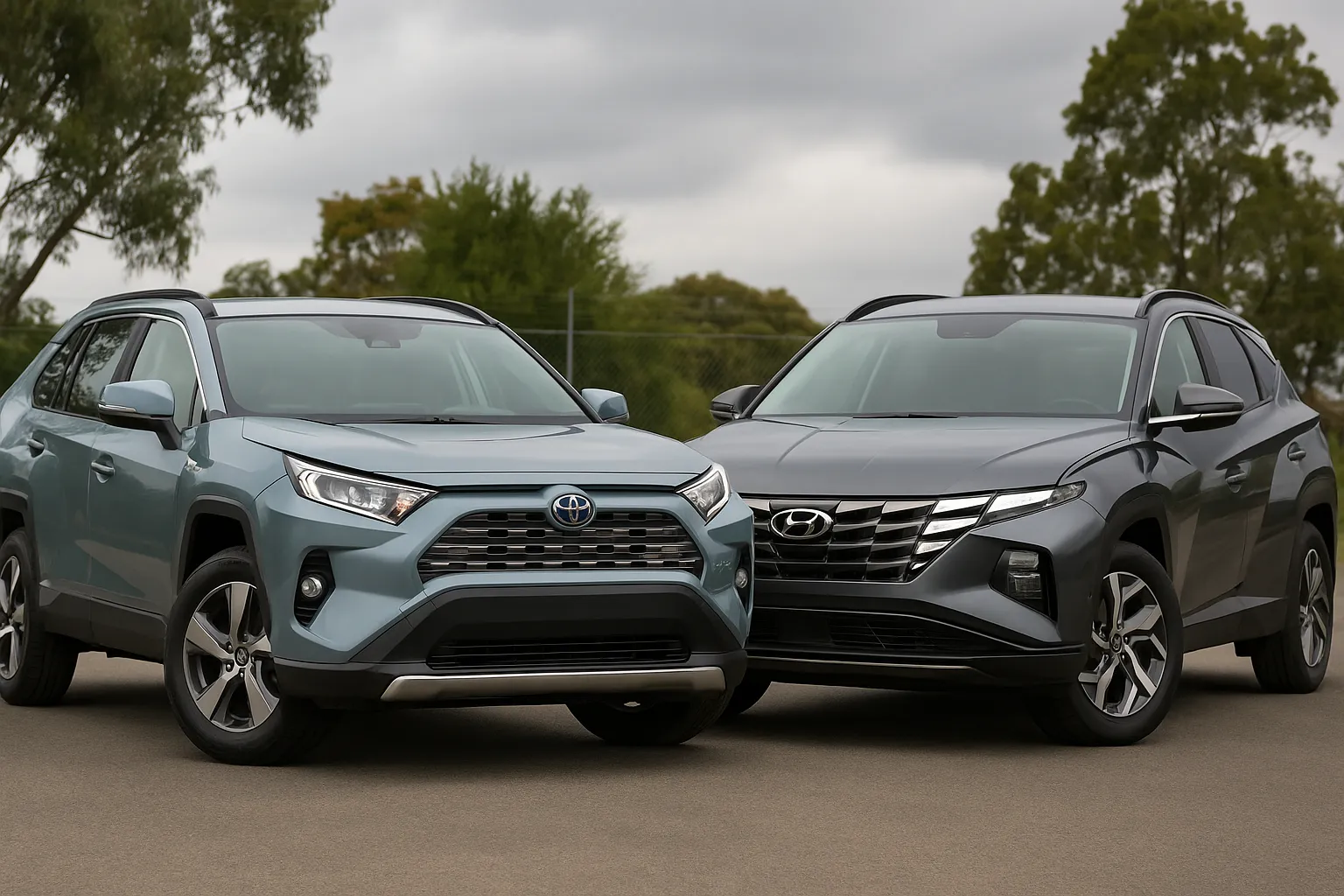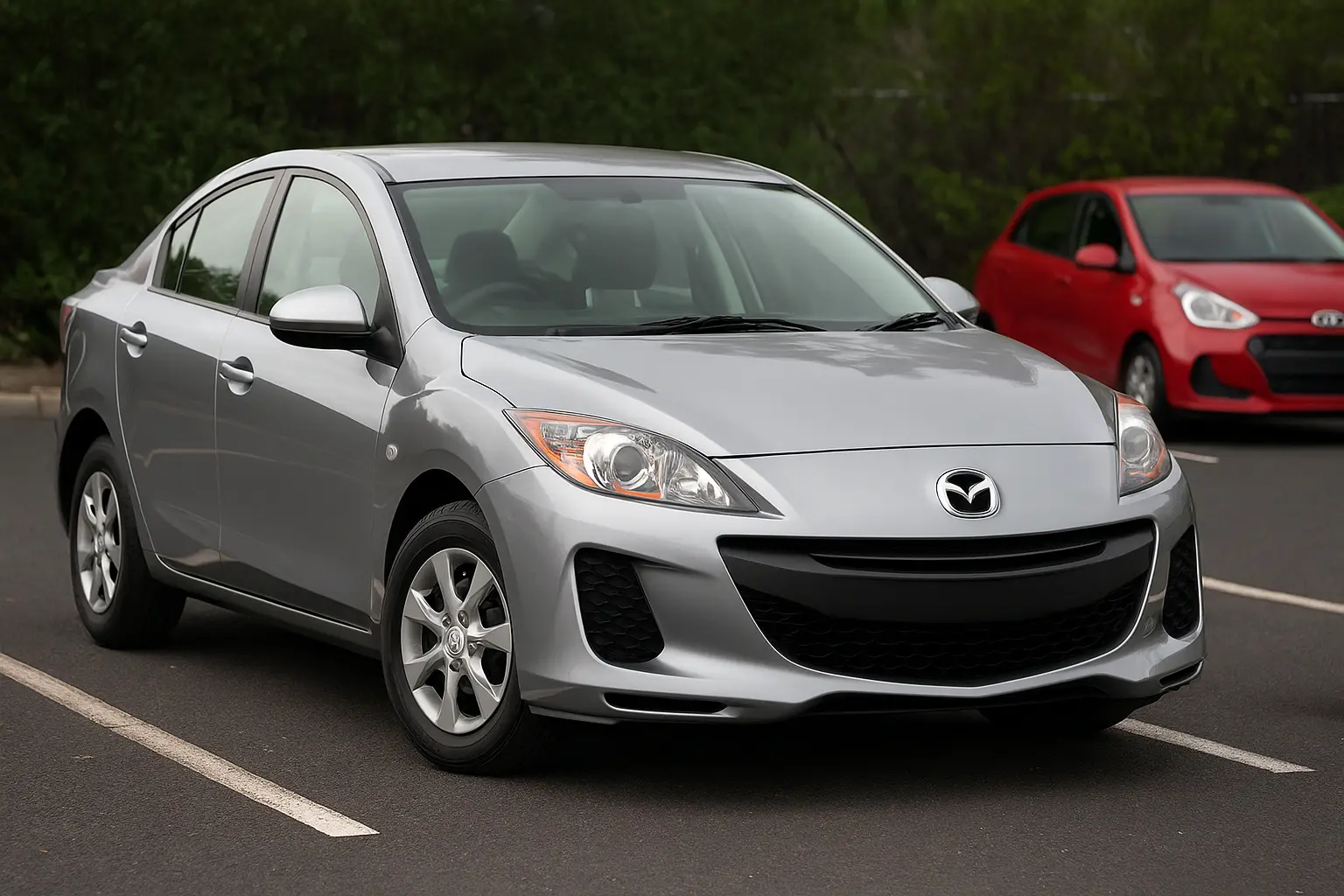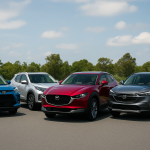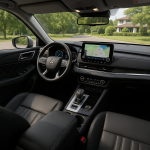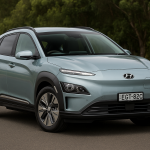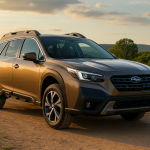When it comes to buying a car in Australia, two names stand out for everyday Aussies – Toyota and Hyundai. Both brands have earned their stripes in the market with strong sales, competitive features, and reputations for reliability. But which one truly gives you better value and long-term peace of mind?
In this in-depth comparison, we break down Toyota vs Hyundai across multiple categories – including vehicle pricing, running costs, servicing, warranty, technology, resale value, safety, and more.
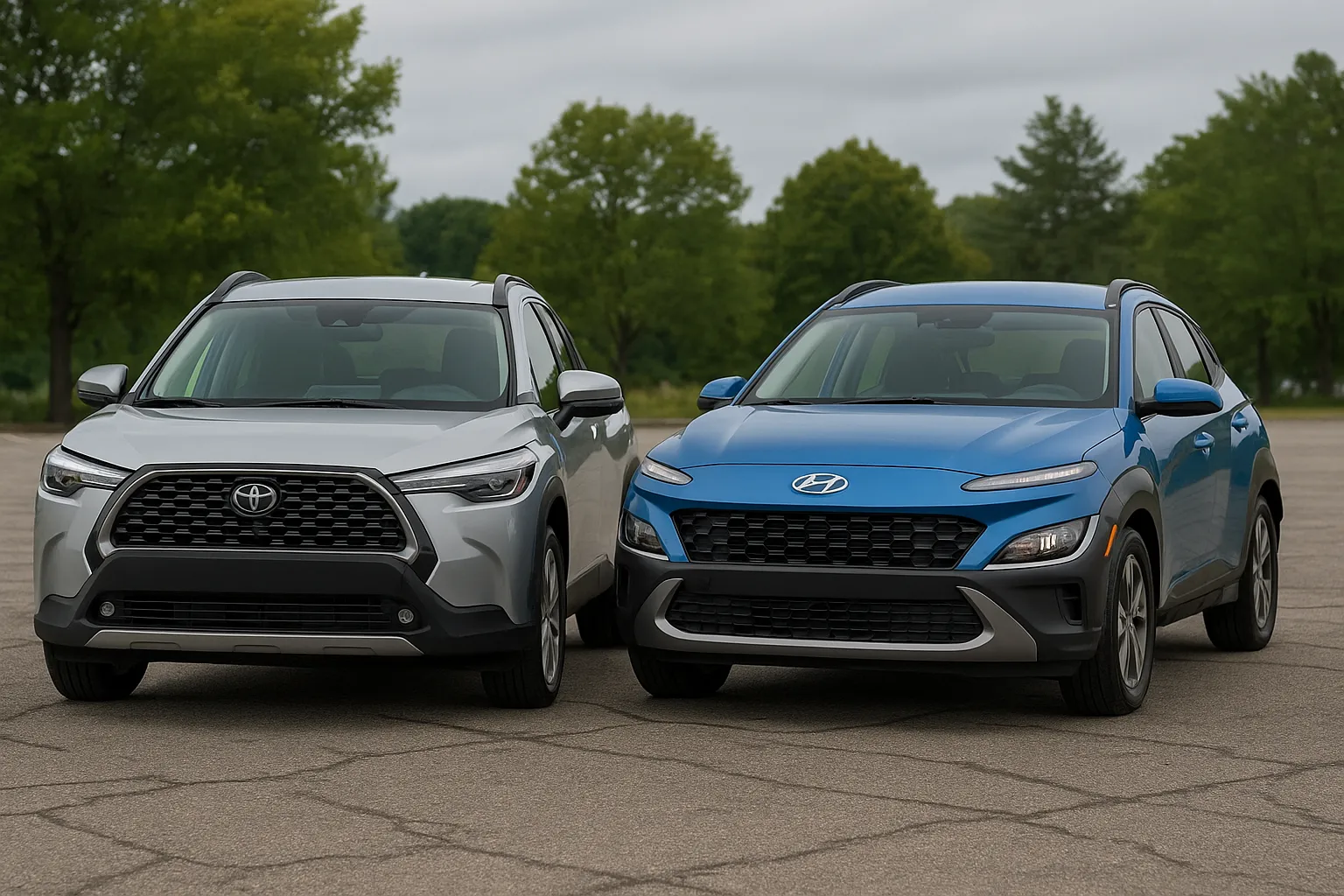
Toyota – The Trusted Giant
Toyota has been Australia's best-selling car brand for decades. Known for bulletproof reliability, high resale value, and low running costs, models like the HiLux, Corolla, Camry, and RAV4 have become household names.
Highlights:
- Established in Australia since the 1960s
- Large dealer network
- Focus on hybrid technology
- Known for longevity and reliability
Hyundai – The Value Disruptor
Hyundai entered the Australian market later but quickly made a name for itself with stylish, affordable, and increasingly high-tech vehicles. The i30, Tucson, and Santa Fe are especially popular.
Highlights:
- Rapid growth in the last 15 years
- Modern designs with tech-focused interiors
- Strong aftersales support and warranty
- Affordable pricing across segments
Lineup Comparison – What Each Brand Offers
Hatchbacks
- Toyota: Yaris, Corolla Hatch
- Hyundai: i20 (N), i30 Hatch
Winner: Hyundai i30 offers more features for the price, while Toyota’s Corolla Hatch Hybrid is unbeatable for fuel economy.
Sedans
- Toyota: Corolla Sedan, Camry, Yaris Sedan
- Hyundai: i30 Sedan, Sonata
Winner: Toyota Camry Hybrid remains a standout for fuel efficiency and value.
SUVs
- Toyota: Yaris Cross, C-HR, Corolla Cross, RAV4, Kluger, Prado, Fortuner
- Hyundai: Venue, Kona, Tucson, Santa Fe, Palisade
Winner: Hyundai has a better feature-to-price ratio, but Toyota dominates hybrids and off-road options.
Utes & Vans
- Toyota: HiLux, HiAce
- Hyundai: No direct ute offering in 2025; Staria Load competes in the van segment
Winner: Toyota by default, with its rugged HiLux lineup.
Price Comparison – What You Pay Upfront
Entry-Level Hatchbacks
- Hyundai i30 Hatch: From ~$24,000
- Toyota Corolla Hatch: From ~$28,000
Observation: Hyundai typically undercuts Toyota on base price and offers more tech features out of the box.
SUVs (Base Models)
- Hyundai Kona: From ~$32,000
- Toyota C-HR: From ~$35,000
Midsize SUVs
- Hyundai Tucson: From ~$38,000
- Toyota RAV4: From ~$42,000
Verdict on Pricing:
Hyundai consistently offers more features at a lower price point. Toyota's hybrids come at a premium, but the long-term fuel savings may balance the initial cost.
Running Costs – Fuel Efficiency & Maintenance
Fuel Economy
- Toyota RAV4 Hybrid: 4.7L/100km
- Hyundai Tucson Petrol: ~8.1L/100km
- Toyota Camry Hybrid: 4.2L/100km
- Hyundai Sonata N Line: ~8.1L/100km
Toyota’s hybrid models clearly excel in real-world fuel efficiency. If you're driving long distances or commuting daily, the savings add up.
Maintenance Costs
- Toyota: Capped-price servicing ($250–$300 per service, 6–12 month intervals)
- Hyundai: Also offers capped-price servicing, but costs vary more by model and engine type
Winner: Toyota slightly edges out Hyundai on service costs and transparency.
Reliability – What Do Aussie Owners Say?
Toyota
- Known globally for unmatched reliability
- Models like Corolla and HiLux regularly last 300,000+ km
- Fewer reported issues in long-term ownership
Hyundai
- Massive improvement since the 2010s
- Most 2020s-era models now rank well in dependability
- Slightly higher incidence of minor electrical or infotainment bugs
Verdict on Reliability:
Toyota is still the gold standard, though Hyundai is closing the gap fast.
Warranty and Servicing – Which Brand Gives More?
Toyota
- 5-year unlimited km warranty
- 7-year warranty on hybrid batteries
- Extended warranty available with logbook servicing
Hyundai
- 5-year unlimited km warranty
- Lifetime Service Plan
- Up to 8-year warranty on electric vehicle batteries
Winner: Hyundai offers stronger EV battery coverage, but both are solid.
Resale Value and Depreciation
Toyota Resale Value (After 5 Years):
- Corolla: Retains ~70%
- RAV4: Retains ~75%
- HiLux: Retains ~80%
Hyundai Resale Value (After 5 Years):
- i30: Retains ~65%
- Tucson: Retains ~60%
- Santa Fe: Retains ~58%
Why It Matters:
Toyota’s vehicles consistently retain more value due to their reputation and demand in the used market.
Safety and Driver Assistance Tech
Common Features (Both Brands):
- AEB (Autonomous Emergency Braking)
- Lane Keep Assist
- Adaptive Cruise Control
- Rear Cross Traffic Alert
- Blind-Spot Monitoring
Toyota’s Safety Edge:
- Toyota Safety Sense is now standard across most of the range
- Solid ANCAP scores across the board
Hyundai’s Safety Offering:
- Hyundai SmartSense is very competitive
- Some base models (like Venue) may miss out on key features
Verdict: Toyota has more consistency, but Hyundai is aggressive in higher trims.
Interior Features & Infotainment
Hyundai’s Strengths
- Modern digital instrument clusters
- Large central infotainment screens (up to 12.3")
- Wireless Apple CarPlay in more models
- Ambient lighting and soft-touch materials
Toyota’s Strengths
- Functional, clean layout
- Durable materials that age well
- Simple-to-use interface but smaller screens in base models
Winner: Hyundai leads in cabin tech and design flair, especially for younger buyers.
Verdict – Which Brand Wins in 2025?
Buy a Toyota If You Want:
- Bulletproof reliability
- Superior hybrid tech and fuel savings
- Higher resale value
- Long-term peace of mind
Buy a Hyundai If You Want:
- Better upfront value and more features
- Stylish, high-tech interiors
- Long warranty and EV coverage
- More engaging designs and driving feel in some models
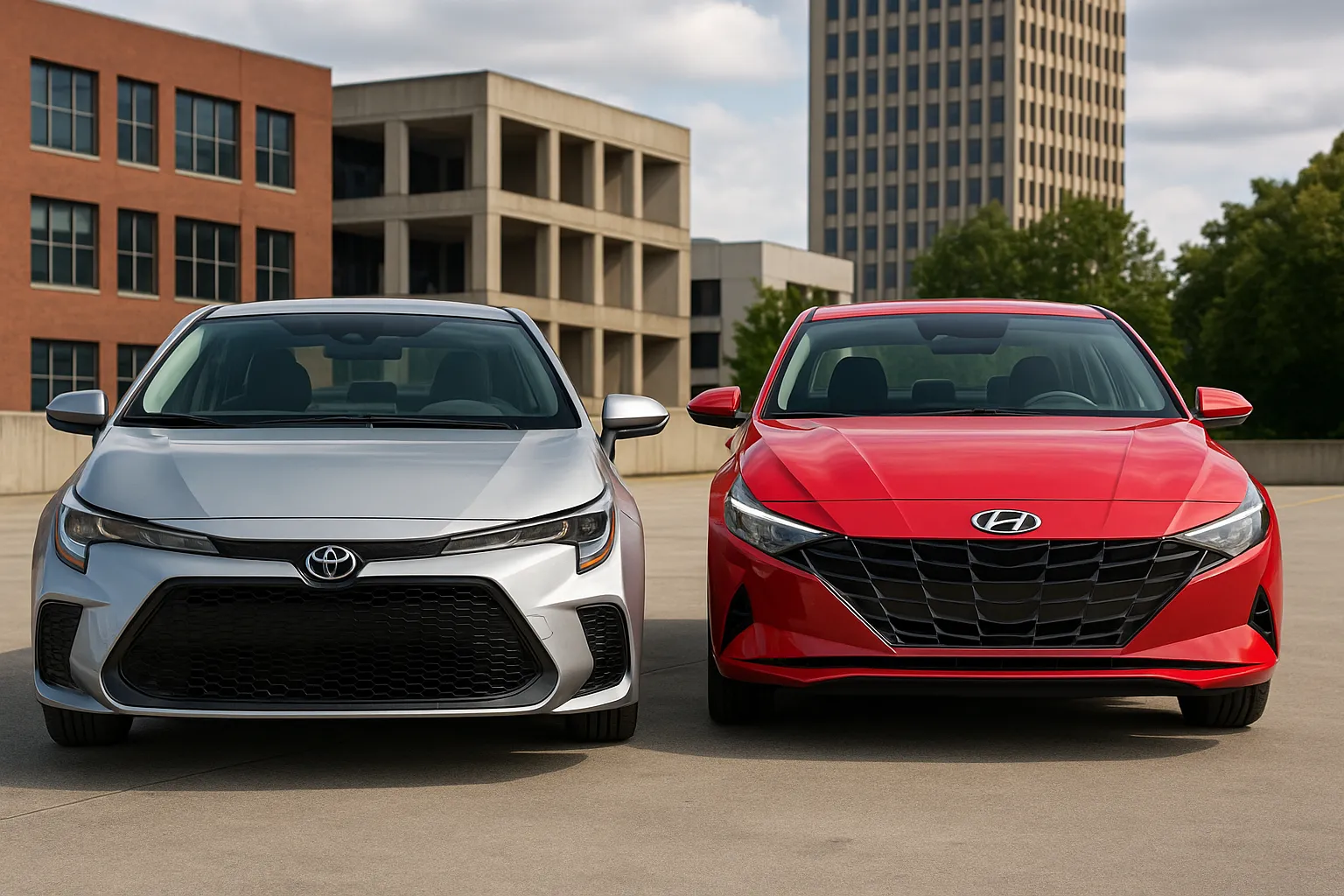
Final Thoughts
Both Toyota and Hyundai have carved out strong positions in Australia’s car market. In 2025, Toyota still holds the crown for reliability, resale value, and hybrid innovation. However, Hyundai is the smarter buy for those who want modern tech, better upfront pricing, and a premium feel without the price tag.
Your final decision may come down to your budget, how long you plan to keep the car, and whether you prioritise low running costs or cutting-edge features.
Leave a comment
Your email address will not be published. Required fields are marked *


